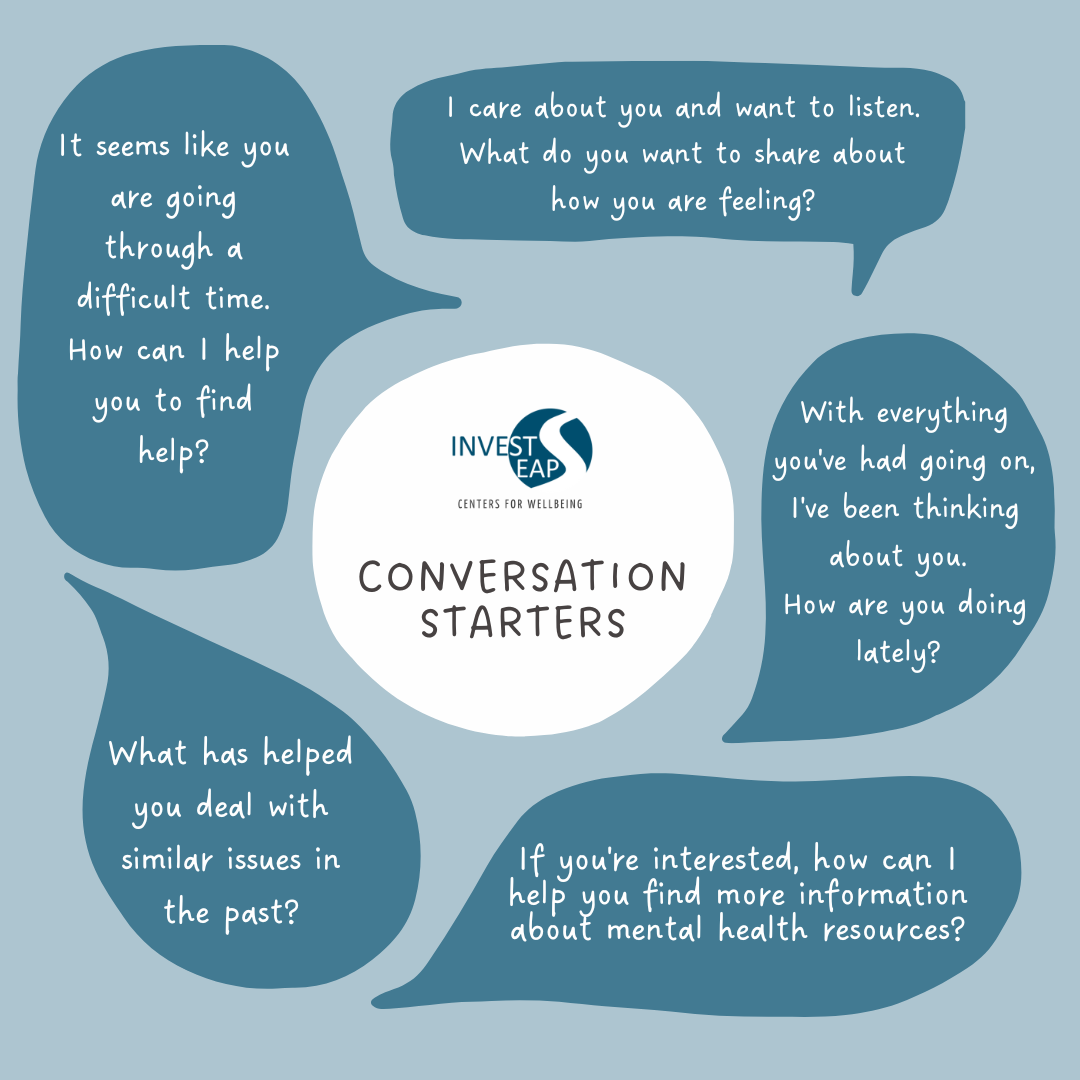Talking to Loved Ones About Mental Health
When a friend or family member may be struggling with mental health issues, it can be challenging to know what to say. You may worry that you will say the wrong thing and further upset them, or perhaps they’ve been nervous in the past about discussing their state of mind. However, you can play a positive role in breaking the stigma and normalizing conversations about mental health! Consider these tips when starting the conversation:
Practice active listening and let them share
Start with an open-ended question and then give them the space and opportunity to share. Avoid putting pressure on them to tell you something they are not ready to talk about. Instead:
- Put everything aside and give your complete attention to the person who is talking
- Let them guide the conversation
- Ask open-ended questions to get more details (“And how does that make you feel?” or “What do you think you need right now?”)
- Set aside any urge to “fix” them; instead, learn to gently hold space
- Use this one-page conversation starter worksheet or the infographic below
Avoid Diagnosing or Comparing
You might feel tempted to tell them about something that happened to you or someone you know and how you were able to get through it. Be careful not to compare or bring in other stories; it can make someone feel like their pain isn’t valid. Instead, empathize with their feelings and stay away from labels or thoughts on a diagnosis.
Be genuine and compassionate
Avoid phrases like "cheer up" or "it will pass." These can often feel dismissive to the other person. Instead, say something like, "Thank you for being willing to share this with me. I know you are feeling alone right now." Treat people with mental health issues with compassion, respect, and empathy.
Engage and keep your word
Tell your loved one that you care about them. Strive to be a consistent part of their lives by including them in your plans, such as inviting them to social events or gatherings, even if they decline your requests.
If they respond to your offer of seeking out help, keep your word. It can be difficult for someone in a dark place to walk through the logistics of finding a therapist or a support group; if they ask for or accept your offer to assist, do so promptly (and call EAP for resources too).
If you're feeling concerned, be honest
If you feel that your loved one is displaying concerning behavior, it is ok to tell them you are worried and express why you think that way. If you or someone you know is considering suicide, help must be sought immediately. Call 911, the National Suicide Prevention Lifeline (800-273-8255), and/or EAP's 24/7 hotline at 866-660-9533. If you feel in immediate danger, call 911 and call the Lifeline or EAP.
Conversation Starters
Need help to figure out how to start a conversation with a loved one? These conversation starters can help you in offering support to those struggling.
For parents supporting a college-aged child, NAMI and the Jed Foundation created this helpful Mental Health College Guide you can share with them, if appropriate.


